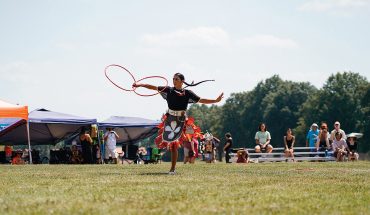Legally yours
by Settle Monroe
photograph by Juli Leonard
Raleigh is home to some of the state’s most powerful and prominent lawyers. The names of large law firms spread across many of the city’s tallest buildings, while boutique firms and solo practitioners fill offices all over town. A lack of choice is not what prevents many of Raleigh’s low-income citizens from securing legal representation. They simply cannot afford it. But downtown, on Dawson Street, stands a small grey building that offers another option. It houses Legal Aid of North Carolina, a statewide nonprofit firm of nine lawyers and a handful of interns and administrative staff who work tirelessly to ensure that lack of resources do not prohibit a North Carolinian from defending himself or herself from civic legal challenges.
Attorney Victor Boone is its guidestar. He has dedicated his 41-year legal career to the work of Legal Aid, and has served as head of the Raleigh office for the past 23 years. In 2014, the Wake County Bar Association presented Boone with its prestigious Joseph Branch Professionalism Award, which is the highest honor granted by the local bar, presented to a Wake County lawyer with over 25 years of experience who exemplifies qualities of professionalism and legal excellence.
“With his boardroom poise, keen intellect, legal skills, and courtly demeanor, Victor easily could have been a partner in a large law firm making five to 10 times his Legal Aid salary. Instead he has chosen to spend his entire career providing topflight legal representation in civil cases to the least among us – the poor, the outcast, the inarticulate, and the mentally ill,” says Steve Smith, a past recipient of this award, and a longtime admirer and friend of Boone. “I’ve never seen Victor discourteous to anyone, ever, not to bullying lawyers or ill-tempered judges or angry and frustrated clients. He treats them all with courtesy and civility. I admire him tremendously.”
Growing up in the small town of Garysburg, N.C., at the height of the civil rights movement, Boone says the seeds of his future career were planted early. His father, an Amtrak car attendant and his mother, a homemaker, made sure that he and his four siblings understood the gravity of national civil rights tragedies occurring all across the country. One that Boone remembers most vividly is the 1964 Mississippi civil rights workers murders. That injustice helped steel him when, as a high school sophomore in 1966, Boone helped to integrate Northampton County High School. In 1968, just months before the start of his freshman year at UNC-Chapel Hill, his longtime hero, Martin Luther King Jr., was assassinated.
Boone says he knew then that he would dedicate his life to fighting injustice and advocating for the voiceless.
His dream of becoming a civil rights lawyer took him to law school at North Carolina Central University, and then, after graduating in 1975, to the Raleigh office of Legal Aid of North Carolina. He has been there ever since. Boone smiles as he recalls the early days. “I immediately took to this kind of public service work. The more I worked, the more I enjoyed it. I found it incredibly rewarding to seek justice for our clients. And I still find it just as rewarding today.”
Fighting homelessness
The Raleigh office of LANC is one of 20 across the state fighting for justice on behalf of low-income North Carolinians in need of legal representation for civil matters. The average household income for LANC clients is about $15,000 per year. LANC attorneys like Victor Boone represent clients on matters ranging from domestic violence and custody disputes to employment discrimination and wrongful termination, with a large percentage – about 30 percent of clients – in need of help with housing issues to avoid homelessness. Boone finds these cases particularly rewarding. “Shelter is everything for a family. It provides dignity and stability. Helping people stay off the streets is challenging but important work. We don’t win all of the cases. We’re not miracle workers. We accomplish what the law allows us to accomplish.”
Working for a nonprofit comes with its challenges. LANC has to turn away hundreds of people in need of legal representation each year due to lack of funding. In 2015, the Raleigh office handled over 1,000 civil cases. Each of these cases was deemed a priority due to sexual or domestic abuse or complex legal issues. Funding from federal sources and others has dramatically decreased over the years, he says, while demand for services has only grown. About half of Legal Aid’s annual budget comes from federal funds; the rest comes from IOLTA (Interest On Lawyers Trust Accounts), the State of North Carolina, United Way, the N.C. Bar Association Foundation, and grants. The Raleigh office in particular is also supported by the City of Raleigh; the Wake County Bar Awards, a fundraising event put on by the Wake County Bar; and private donations. When the Raleigh office cannot take a case, that client is referred to a network of local lawyers in private practice who donate their time to offer pro-bono services.
Boone is quick to recognize that he is one member of an incredibly generous and supportive community of Raleigh attorneys. “In Raleigh we are fortunate to have lawyers who understand that with the great privilege of practicing law comes a great responsibility to give back,” he says. “Equal access to our judicial system is of utmost importance. The extent to which one person is impacted by injustice impacts us all. I am one of many wonderful lawyers in the community who care deeply about this issue.”
While Boone admits the needs he encounters daily are vast and sometimes overwhelming, he is resolute in his pursuit to remove economic barriers to justice. “I will never be desensitized to the horrendous things that are happening. If I can help people from being killed, prevent further violence, or help a family to stay off the streets, my conscience will not allow me to look the other way. We will never know how many lives have been saved by our help at Legal Aid.”
The same passion for equality and justice that led him to integrate a high school and later to study and practice law continues to drive Boone today. “For as long as I am capable, I will be a public servant,” he says. “I want to continue helping people for the rest of my life. It is truly my purpose.”




